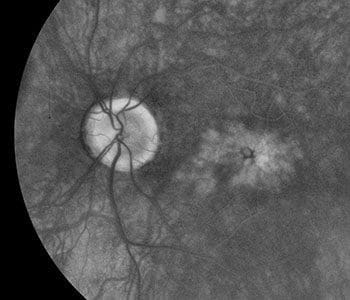
With this condition, fluid leaks from retinal blood vessels, causing swelling or thickening of the macula. This is called macular edema and results in blurring of the central vision.
https://www.youtube.com/watch?v=85nKRrcOv9I
The macula is the small area at the center of the eye’s retina that allows you to see fine details clearly. The retina is a layer of light-sensing cells lining the back of your eye. As light rays enter your eye, the retina converts the rays into signals, which are sent through the optic nerve to your brain where they are recognized as images. Damage to your macula causes blurred central vision, making it difficult to perform tasks such as reading small print or threading a needle. In some conditions, fluid leaks from retinal blood vessels, and this leakage causes swelling or thickening of the macula. This is called macular edema and results in blurring of the central vision.
Macular edema can be caused by a variety of conditions including the following:
- Diabetic retinopathy
- Retinal vein occlusion
- Uveitis (inflammation)
- Cataract surgery
Macular edema occurs in approximately 5% of uncomplicated cataract surgeries. In many cases it will resolve without treatment a few weeks after surgery.
How is a macular edema detected?
The doctor detects macular edema by examining your retina. He will also obtain optical coherence tomography (OCT) scans that take high definition photographs of the back of the eye. These photographs show if an abnormality exists in your retina.
How is macular edema treated?
Treatment for mild cases of macular edema may only involve close observation. In other cases, initial treatment may only involve topical eye drops including both a steroid drop and non-steroidal anti-inflammatory. In more difficult cases, injections of medicine either around or into the eye may be needed to resolve the swelling.
